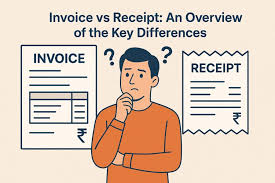The rise of digital shopping in Nigeria is no longer a trend — it’s a movement. More people now prefer buying products online than ever before. From fashion items and gadgets to groceries and skincare, the e-commerce industry in Nigeria is booming.
If you’ve ever wanted to start your own online store but didn’t know how to begin, this step-by-step guide will walk you through how to launch and grow a profitable e-commerce business in Nigeria — even with little capital.
Why Start an E-commerce Business in Nigeria?
Before we get into the how, here’s why e-commerce is a smart move:
- 🌍 You can reach customers across Nigeria (and beyond)
- 💼 You don’t need a physical store
- 📦 You can start with dropshipping or small inventory
- 📲 Nigeria’s internet and mobile phone penetration supports online buying
- 💸 It can be run as a side hustle or full-time business
Step-by-Step: How to Start an E-commerce Business in Nigeria
1. Choose a Niche (Don’t Sell Everything!)
One of the biggest mistakes new e-commerce business owners make is trying to sell too many unrelated items.
Pick a niche — it could be fashion for millennials, organic skincare, kids’ items, home decor, or tech accessories.
💡Ask Yourself:
- What products are in demand?
- What do I love or know a lot about?
- What problem can I solve?
2. Source or Create Your Products
There are three main ways to get your products:
- Buy wholesale from Nigerian markets (e.g. Balogun, Aba, Trade Fair)
- Import through platforms like Alibaba or 1688
- Make your own products (handmade, thrifted, or manufactured)
If you’re low on capital, start with a dropshipping model — you promote the products online, and your supplier handles delivery.
3. Register Your Business
Registering your e-commerce business gives you credibility and legal protection.
Start by registering with the Corporate Affairs Commission (CAC) as a Business Name (e.g. “Zikora Fashion Empire”).
🔐 It makes it easier to:
- Open a business account
- Partner with payment processors
- Gain customers’ trust
4. Build an Online Store or Marketplace Presence
You can either:
Option A: Sell on Marketplaces like:
- Jumia
- Konga
- Jiji
- Facebook Marketplace
🟢 Pros: Easy to set up, lots of traffic
🔴 Cons: High competition, limited branding
Option B: Create Your Own Online Store using:
- Shopify
- WordPress + WooCommerce
- Flutterwave Store
- Selar (for digital products)
- Paystack Storefront
🟢 Pros: Full control, brand building
🔴 Cons: Requires setup time and promotion
5. Set Up a Payment System
To collect money from customers seamlessly, integrate secure payment gateways.
Popular options:
- Paystack
- Flutterwave
- Monnify
- Interswitch
💡Use ProInvoice to issue professional invoices to customers — especially for bulk orders, B2B transactions, or repeat buyers.
6. Plan for Logistics (Delivery)
Good delivery = happy customers.
Decide whether:
- You’ll handle deliveries yourself (pickup & dispatch)
- Use logistics companies like GIG Logistics, Kwik, ShapShap, Fez, or DHL
- Partner with dispatch riders in your city
🚚 Pro Tip: Always track deliveries and notify customers about their order status.
7. Promote Your Store Online
Here’s where your e-commerce success depends on consistency. Use digital marketing tools to drive traffic and generate sales:
- Instagram & Facebook Ads
- WhatsApp Marketing
- Email campaigns
- Influencer partnerships
- SEO-optimized blog (like this one 😄)
💬 Use social media to showcase customer reviews, testimonials, behind-the-scenes, and product usage.
8. Manage Sales & Customer Orders
Keep things organized. As you start making sales, it’s important to track orders, issue invoices, and manage payments professionally.
📩 ProInvoice helps you:
- Send invoices & receipts instantly
- Track who owes you
- Automate payment reminders
- Get a downloadable PDF for your records
9. Build Trust and Customer Loyalty
In Nigerian e-commerce, trust is everything.
Customers will buy again and again if you:
- Deliver fast
- Provide good packaging
- Respond to messages professionally
- Handle complaints quickly
- Use proper invoices and receipts
🤝 Consider offering loyalty discounts, bundle deals, or reward points.
Common Mistakes to Avoid
- Selling without understanding your market
- Ignoring customer service
- Failing to track expenses and profits
- Not having return/refund policies
- Using unprofessional order processing methods
Final Thoughts: Start Small, Stay Consistent
You don’t need to wait until you have everything “perfect” to launch. Many successful Nigerian e-commerce businesses started from Instagram, WhatsApp, or a single product.
💡 What matters most is consistency, great customer service, and financial organization.
Bonus Tip: Use ProInvoice to Look More Professional
If you’re serious about turning your online hustle into a legit brand, start sending real invoices.
With ProInvoice, you can:
- Create branded invoices in minutes
- Track payments & overdue orders
- Send receipts automatically
- Keep your business books clean
🧾 Click here to create your free ProInvoice account: Get Started













